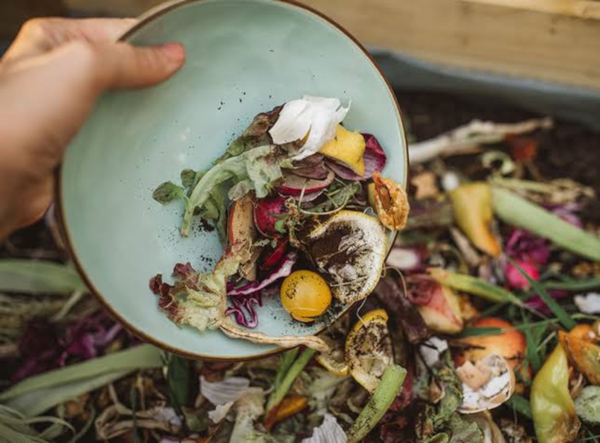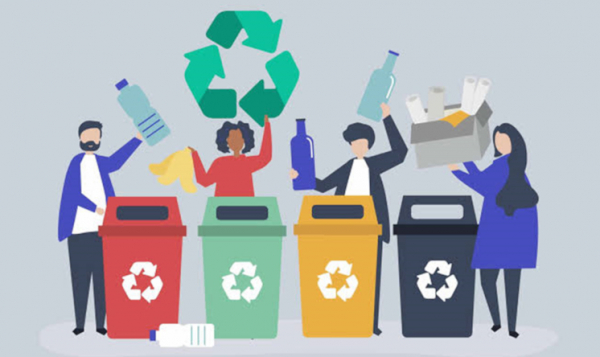Due to its detrimental environmental impact and human health repercussions, industrial garbage receives a lot of attention. That being said, more sustainable waste management strategies can benefit all enterprises and sectors.
You may be wondering what sustainable waste management means. This procedure mostly entails a shift from the conventional make-use-dispose manufacturing cycle toward a more circular economy. Waste is recycled into the manufacturing cycle in this economy, either as energy, fresh raw materials, or a new product.
Manufacturers will benefit greatly from this development. By reusing products from your waste stream, you can save money on disposal and materials purchases. Even better, you've laid the groundwork for future generations to create new technologies to tackle global warming and leave the world in a better shape than it's been in a long time.
Importance of Sustainable Waste Management Practices
For manufacturers, switching to waste management stands to reason. It lowers greenhouse gas emissions, increases energy efficiency, and lowers the quantity of solid trash produced every year. It even helps to conserve natural resources by allowing manufacturers to reuse waste products in their manufacturing process.
Here are some concrete instances of why moving away from the linear economy is critical for addressing the issues that our present consumption paradigm has created:
Paperboard and Paper
According to the EPA, paper and paper-related items are the most common component of urban solid garbage, accounting for 292.4 million tons in 2018. Over 50% of this garbage was transferred to a landfill, despite the fact that nearly 32% of it was recycled and composted.
While wood is a reusable natural resource, some natural forests are removed to make room for pine plantations, which have a negative impact on the ecosystem. The paper industry consumes a lot of water and energy. Two barrels of oil, 4,100kW of electricity, and 60 pounds of CO2 are saved by recycling a ton of paper. For more benefits of recycling paper, you can read this article.

Food Garbage
This is the second-largest contributor to municipal solid trash, accounting for 21% of total garbage in 2018. This sum is almost $161 billion, or half of the total food supply in the United States.
What makes food waste even worse is that some households are vulnerable to food insecurity, yet the majority of the food that is thrown out is still edible. Excess food production, uncertain markets, processing issues, and overstocking in grocery shops are all contributing factors.
Plastics
In recent years, there has been a rise in public awareness of the problems associated with single-use plastics. Plastic does not require a special disposal method because it is considered non-hazardous waste. Instead, it ends up in a landfill or a body of water, where it has a variety of negative effects on the environment.
There are numerous challenges with plastic recycling. Only 8.5 percent of single-use plastics are collected and recycled. Unfortunately, because the end result is lighter than the original, plastic isn't the best option for recyclable materials. Many businesses find it more cost-effective to produce excess plastics.
Any approach aimed at decreasing plastic waste must focus on finding acceptable alternatives that are better suited to current needs.
Benefits of Sustainable Waste Management
Here are some benefits of this practice:
Space Creation
If garbage isn't managed properly, it will end up on land, either scattered or centralized in a landfill. Landfills are large structures that take up a lot of space. In some tight spaces, you'll need to manage and control your waste in a sustainable manner so that you can get the most out of it.
It Saves Cost
You will not need to buy another of a particular item once you have recycled it. You will save money that would have been spent on an item that could be recycled It also means that the organizations in charge of our garbage will not be obligated to handle it consistently since there will be less of it.
Pollution Control
Every garbage we dump has a unique impact on the ecosystem. Pharmaceutical waste, for example, contaminates our water, and discarded meals attract rodents and flies. Sustainable waste management enables us to better understand our garbage and how to manage it. For other ways to manage pollution, you can check here: https://www.consumernotice.org/
Wrap Up
Humans are unable to exist without producing waste and this is why we need sustainable waste management. This procedure carefully and effectively assists us in being better and more responsible inhabitants of the earth. This article defined and highlighted some benefits of this procedure. Feel free to check them out. You can also share with family and friends to help preserve the ecosystem.





